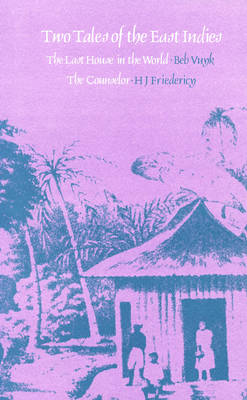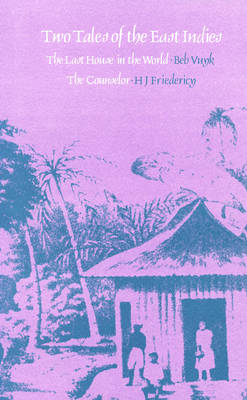
- Retrait gratuit dans votre magasin Club
- 7.000.000 titres dans notre catalogue
- Payer en toute sécurité
- Toujours un magasin près de chez vous
- Retrait gratuit dans votre magasin Club
- 7.000.000 titres dans notre catalogue
- Payer en toute sécurité
- Toujours un magasin près de chez vous
39,45 €
+ 78 points
Description
For centuries, women who have lived in inhospitable regions have displayed enormous courage, resourcefulness, self-sufficiency, and determination in their daily lives. The Last House in the World is an autobiographical novel based on the author's life on the island of Buru in the Moluccas. Beb Vuyk lived in a very remote area, in a house so isolated that it seemed at the edge of the world. Vuyk is particularly effective in describing the loneliness of frontier existence for women and the emotional cost of daily confrontations with what in more civilized areas would be considered extraordinary events and dangers. Ultimately, although the protagonist feels physically and emotionally constrained by her regenerative powers (i.e., the ability to conceive and nurture life), it is these very powers that enable her to be victorious in life's most awesome confrontation, the struggle with death. The author of many fictional stories, Vuyk published her first novel, Thousand Islands, in 1937. Writing from personal experience, H. J. Friedericy provides in The Counselor a rare glimpse of life in the outlying districts, an existence that was quite different from that on Java. Friedericy entered the colonial service in the Dutch East Indies at the age of twenty-one, and held a number of administrative positions. All his writings concern southern Celebes, where he was stationed during the first years of his career. Written in 1958, The Counselor is Friedericy's last work of fiction. It recalls life on Celebes during the 1920s, when the Dutch were struggling to impose what they considered an enlightened colonial administration on the remnants of a feudal system they had nearly destroyed. The novel is written in a style of detached curiosity and portrays the relationship of a young Dutch government official with an older and wiser administrator--the Counselor of the title. The story describes the numerous events and crises that confront the younger man in the course of his duties.
Spécifications
Parties prenantes
- Auteur(s) :
- Editeur:
Contenu
- Nombre de pages :
- 216
- Langue:
- Anglais
- Collection :
Caractéristiques
- EAN:
- 9780870234033
- Date de parution :
- 26-09-83
- Format:
- Livre relié
- Format numérique:
- Genaaid
- Dimensions :
- 147 mm x 221 mm
- Poids :
- 444 g







